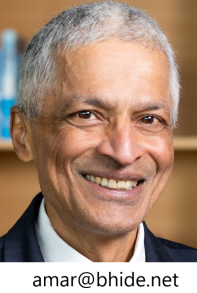The Zero Percent solution (WSJ Oped + Tribute to Volcker)
Paul Volcker’s critique of 2% inflation targets in his recent memoir spurred me to write this oped just published in the Wall Street Journal. Volcker focuses on the economic hazards of the targets; I question the legitimacy of “independent” appointees in making inherently political choices about ends and not just means. The Constitution envisions a republic messily governed “by the people” not just “for the people” by philosopher-kings in an efficient Kallipolis.
My argument (which Volcker may well dispute) echoes the problem raised in Dick Nelson’s 1977 classic, The Moon and the Ghetto, of carelessly throwing policy goals “over the legislative wall” to experts. I plan to expand on this in a book based on my practical knowledge seminar (This become a consuming obsession for me, so Id love to get any thoughts on the seminar’s manifesto-like syllabus).
But here I’d like to add my two bits to the flood of eloquent, well-deserved tributes occasioned by the Volcker memoir.
Martin Wolf’s review in the FT starts by declaring: “Paul Volcker is the greatest man I have known. He is endowed to the highest degree with what the Romans called virtus (virtue): moral courage, integrity, sagacity, prudence and devotion to the service of country. ”
Amen.
Then there are other qualities I’ve had the good fortune to witness.
- Wry, spontaneous humor. (Numerous examples, which I won’t get into here).
- Expressing sharp views as musing sorts of questions (“I wonder why….”). Classic instance from a 2009 workshop: A former FOMC member defended the Fed’s easy money policies after 2000 on the grounds that the FOMC didn’t want to “surprise” the bond market with unexpected tightening. Volcker, who hadn’t said a word all morning asked, “what’s wrong with making bond traders lose money from time to time”?
- Lightning fast mind. An anecdote from a conference in Berlin: Paul had given the dinner speech — which had at least two memorably funny, unrehearsed bits. A few of us were walking back to the hotel. On Paul’s right was a hedge fund manager (and Chicago econ PhD) who questioned Paul’s skepticism of CDSs. The hedge fund manager claimed that single name CDSs — which the hedge fund manager has used to considerable personal profit — had great social utility. After hearing out the complex details (I can’t remember them) Paul nailed a crucial and untenable assumption in the argument, again stated as a question. It was late, dark and chilly. Paul was in his 80s and couldn’t hear very well… and yet, zing.
- Generosity of spirit. Though our paths had crossed a little (e.g. at the Berlin conference) Paul had no reason to know me from a hole in the wall when I sent him a copy of my book manuscript in 2010. Yet I soon got a letter commending my bravery in writing the book (kind, given I took no risk from arm chair rock-throwing) and a blurb I will forever cherish.
After the book’s publication, RealClear and the Kauffman Foundation hosted a celebratory dinner. Paul had a prior dinner appointment, yet he still came for cocktails. Then sat down as appetizers were served to say some thoughtful words before leaving for his engagement.
I feel privileged for these glimpses of a life so well lived and, amidst the current cacophony of shrill posturing, grateful for Paul’s example of dignified service.
And Happy Diwali![1]
[1] Celebrated by Hindus, Jains and Sikhs, Diwali has helter-skelter Hayekian appeal. The festival has no common historical, mythological or religious foundation. Its customs have spontaneously evolved in different ways in different places. It spans several days during which people may worship gods of wealth, wisdom, war and so on through a variety of ceremonies in a variety of sequences.
There are private and public costs though: type II diabetes risks from unrestrained sugar consumption; and, on the public side, noise and air pollution from the maddening, uncontrolled, non-stop firecrackers.
